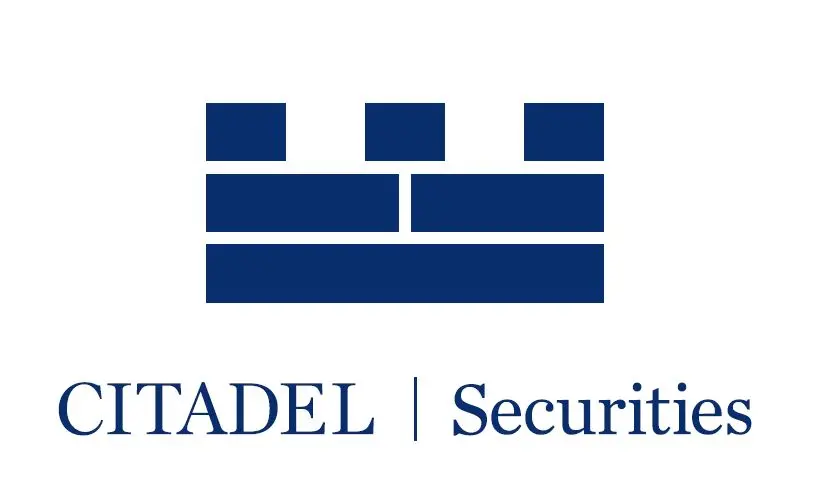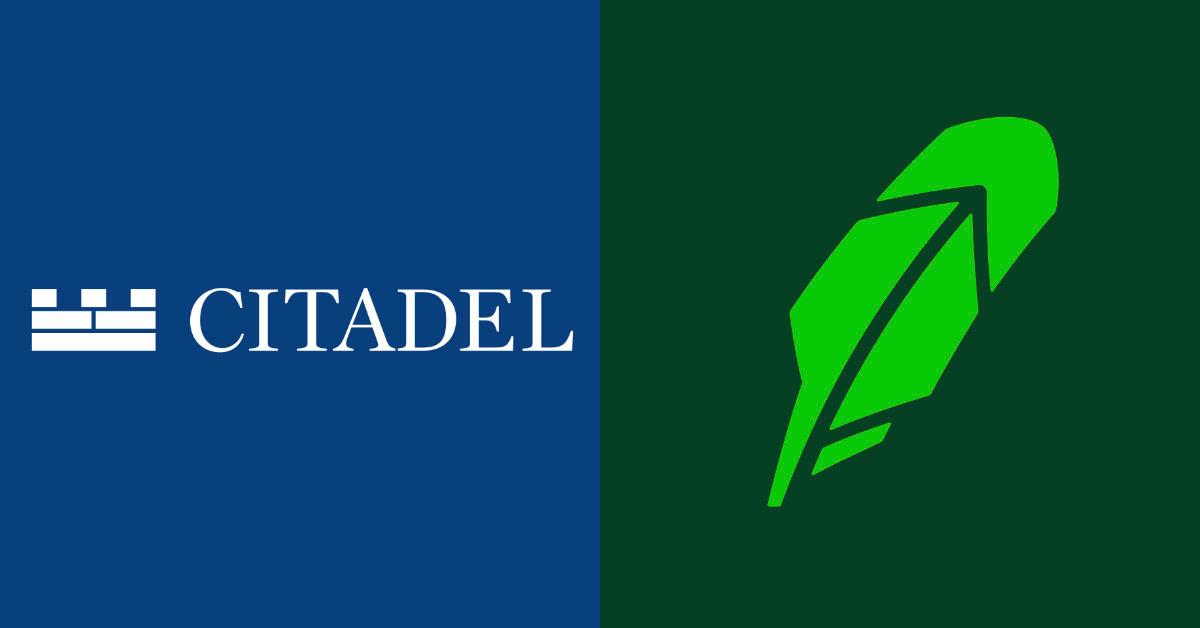Author: Fairy, ChainCatcher
Editor: TB, ChainCatcher
In the early hours of today, Bloomberg reported that Citadel Securities, one of the world's largest market makers, plans to enter the cryptocurrency market and is seeking to join the market maker lists of several exchanges. The news has sparked widespread attention and discussion in the market. How will the entry of Citadel Securities, a top player in the global financial market, change the landscape of the crypto market? What opportunities and challenges will it bring?
This article will explore the significance and potential impact of Citadel Securities' entry into the cryptocurrency market through a Q&A format.

Q1. Who is Citadel Securities?
Citadel is currently one of the hottest players in the global financial market. It started as a small hedge fund and has gradually grown into one of the most profitable investment firms in the history of the financial industry over the years.
Citadel consists of Citadel LLC and Citadel Securities, with Citadel Securities being a global market maker and Citadel LLC being a multinational hedge fund financial services company.
As a core participant in the U.S. stock market, Citadel Securities has become the largest buyer and seller of stocks globally, accounting for nearly a quarter of the trading volume in the U.S. stock market, involving over 11,000 U.S. listed securities and more than 16,000 over-the-counter securities. By August 2024, its stock trading volume even surpassed that of the New York Stock Exchange.
On April 9, 2024, Citadel Securities was successfully included in the "2024 Hurun Global Unicorn List" with a corporate valuation of 155 billion RMB, ranking 13th and becoming a giant in the global fintech sector that cannot be ignored.
Q2. What is the background of the Citadel Securities team?
Citadel Securities was founded by legendary investor Ken Griffin and is currently led by CEO Zhao Peng. Zhao Peng was born in Beijing and is regarded as a top figure among Chinese Americans on Wall Street. He was admitted to the mathematics department of Peking University at the age of 14 and later obtained a Ph.D. from the University of California, Berkeley. After joining Citadel Securities, he rose from analyst to partner, general manager, and finally CEO in less than 10 years.
Citadel Securities has a highly specialized and international team, with approximately 1,600 employees worldwide. About 45% of the team members hold advanced degrees, including around 260 Ph.D. graduates, with research fields covering more than 40 disciplines, including applied mathematics, computer engineering, bioinformatics, and geophysics. Team members come from about 80 countries, reflecting its global layout and multicultural background.

Q3. What has been Citadel Securities' attitude towards cryptocurrencies in the past?
In the past, due to the uncertainty of the U.S. regulatory environment, Citadel Securities has taken a cautious stance on digital assets and has avoided involvement in retail-oriented crypto platforms.
Founder Ken Griffin was once a skeptic of Bitcoin. Before the Terra collapse in 2022, Griffin stated that Citadel "might enter the crypto industry in the coming months." However, the Terra incident and the market crash may have undermined his confidence in the crypto market, and Citadel ultimately did not take action.
In recent months, Griffin has acknowledged missing early opportunities in the crypto market and revealed at the 2025 UBS Financial Conference that the company is considering entering the crypto market and acting as a market maker.
Q4. Why is Citadel Securities so powerful?
The key to Citadel Securities' success lies in its control over order flow and its in-depth analysis and application of vast amounts of data. The company processes trading information worth up to $450 billion daily and makes decisions through complex predictive analytics and valuations.
Citadel Securities can accurately assess the fair value of stocks and options in different market environments. According to insiders, Citadel invests hundreds of millions of dollars annually in hard technology and quantitative research.
Q5. Does Citadel Securities have any notable operations?
One of the company's most famous events was the GameStop short squeeze that occurred in 2021. Retail investors banded together to buy GameStop stock, successfully pressuring the hedge funds that were shorting the stock, leading to significant losses and the bankruptcy of Melvin Capital.
Investigations showed that most of the order flow from Robinhood during this process went to Citadel Securities. However, the funds under Citadel LLC were partners with Melvin Capital and injected $2 billion during the crisis. This dual role as both a market maker and an investor sparked controversy in the market.
During the most intense days of the short squeeze battle, Citadel Securities' daily trading volume reached as high as 7.4 billion shares, surpassing the industry's average daily trading volume in 2019.

Q6. What does Citadel Securities' entry mean for the crypto market?
The community's views on Citadel Securities' entry into the crypto market are divided. Some believe it is a positive development, while more lean towards a negative outlook.
Positive:
- Increased market liquidity: As a leading global market maker, Citadel Securities' entry can enhance liquidity in the crypto market.
- Attracting more investors: As a well-known financial institution, Citadel's participation can help attract more investors, especially institutional investors, into the crypto market, further driving capital inflow.
- Regulation and compliance: Citadel's operational methods in traditional markets typically adhere to strict compliance and regulatory requirements. Citadel's compliance background will accelerate the integration of the crypto market with traditional financial regulatory systems, which may lead to higher KYC/AML requirements for exchanges and projects.
Negative:
- Potential for increased market manipulation: Citadel Securities has faced controversy for its short-selling operations in traditional markets. Community members are concerned that, as a large market maker, its strong market control may exacerbate the risk of manipulation in the crypto market.
- Market transparency: Community members have noted that Citadel's short positions are not fully disclosed, with 13F filings only showing long holdings, and its market-making short sales are typically routine operations rather than long-term bets.
- Increased industry concentration: The entry of Citadel Securities may lead to further concentration of market resources among a few large institutions, increasing industry concentration. This could make the market more standardized and efficient but may also weaken the competitiveness of small and medium-sized participants.
Q7. What strategies will Citadel Securities adopt in the crypto market?
Citadel Securities plans to join the market maker lists of several mainstream crypto exchanges, including Coinbase Global Inc., Binance Holdings, and Crypto.com. Once approved by the relevant exchanges, Citadel Securities plans to first establish a market-making team outside the United States.
The company's ultimate push and interest in the crypto market may be influenced by the introduction of new regulatory rules in the coming months.
Q8. What is Citadel's current involvement in the crypto market?
In 2023, Citadel Securities quietly entered the crypto market through EDX Markets. EDX Markets is a crypto exchange launched by Citadel Securities, Charles Schwab, and Fidelity Investments, exclusively for institutional investors.
EDX Markets employs a traditional market structure to handle crypto trading, providing institutional investors with familiar execution and settlement models.
Q9. How will Citadel Securities' entry change the landscape of the crypto market?
Increased difficulty for retail investors to profit: The "grassroots approach" of retail investors may be further marginalized. Market opportunities and resources will become more concentrated among large institutions and high-net-worth investors, making the disadvantages of retail investors in terms of information, technology, and capital more pronounced, significantly increasing the difficulty of profiting.
Increased pressure on small and medium market makers: Citadel Securities will pose significant pressure on existing small and medium-sized market makers. With its massive capital scale, advanced algorithmic trading systems, and global resource network, it is likely to dominate in liquidity provision and trading execution efficiency. Many small and medium market makers may be forced to exit the market due to their inability to compete.
Additionally, Citadel Securities' entry may also trigger a reallocation of funds from non-market maker institutions.
Q10. Why did Citadel Securities enter the crypto market later than its competitors?
Unlike competitors such as Jane Street and Jump Crypto, Citadel Securities had previously kept its distance from crypto assets. However, as regulatory pressures increased in 2023, companies like Jane Street and Jump began to scale back their operations in the U.S. crypto market, providing Citadel Securities with an opportunity to fill the market gap.
Citadel's delay in entering the crypto market may have been due to considerations of market structure and regulatory risks. Its recent expansion into crypto business also reflects its adaptation to the increasingly changing U.S. regulatory environment.
免责声明:本文章仅代表作者个人观点,不代表本平台的立场和观点。本文章仅供信息分享,不构成对任何人的任何投资建议。用户与作者之间的任何争议,与本平台无关。如网页中刊载的文章或图片涉及侵权,请提供相关的权利证明和身份证明发送邮件到support@aicoin.com,本平台相关工作人员将会进行核查。




